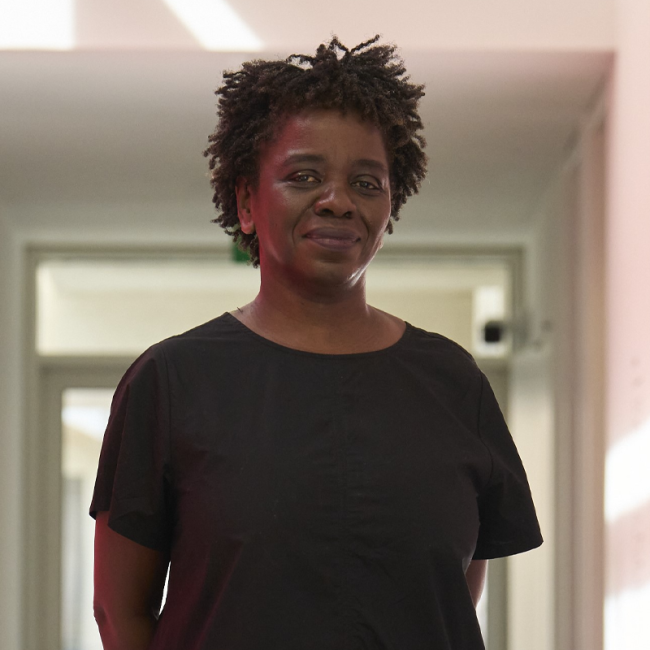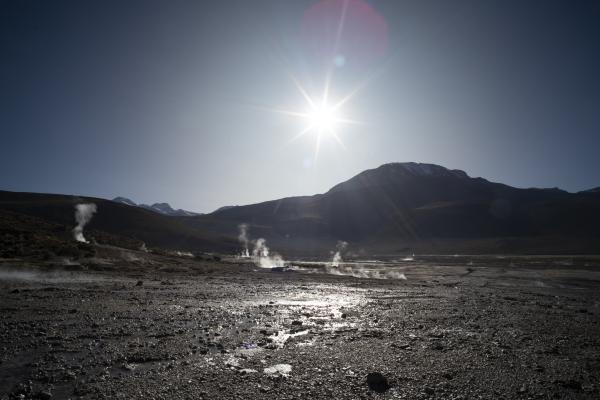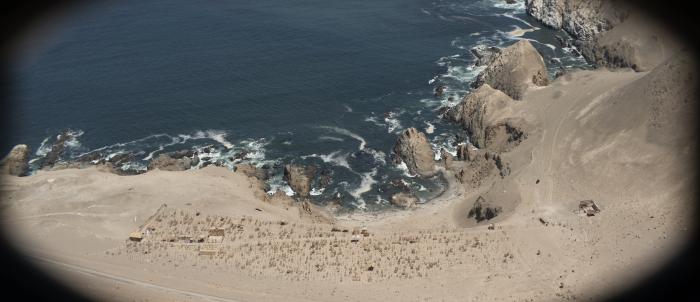Denise Ferreira da Silva
WED 17 Sep 2025, 15.15–16.15
Arenan – Karlstad City Library/Stadsbiblioteket
WED 17 Sep 2025, 16.45–18.15
Arenan – Karlstad City Library/Stadsbiblioteket

Keynote with Denise Ferreira da Silva and Discussion
Chair: Doris Posch
WED 17 Sep 2025, 15.15–16.15
Arenan – Karlstad City Library/Stadsbiblioteket
--------------------
Film Screening Ancestral Clouds Ancestral Claims
followed by a Conversation with the Filmmakers and Artists Arjuna Neuman, Denise Ferreira da Silva and Jyoti Mistry
Chair: Doris Posch
WED 17 Sep 2025, 16.45–18.15
Arenan – Karlstad City Library/Stadsbiblioteket
Ancestral Clouds Ancestral Claims
by Arjuna Neuman & Denise Ferreira da Silva, Germany/Austria, 2023, 49 min.
Ancestral Clouds Ancestral Claims is the latest part of a series called “Elemental Cinema.” Each film in this series is dedicated to one of the four classical elements: earth, water, fire, or air. In it, the artists have developed an approach that takes matter, material, and the elemental as its starting point – aspects which continue to be neglected and suppressed by the globally dominant order of thinking and being.
In doing so, Denise Ferreira da Silva’s and Arjuna Neuman’s work undermines ways of thinking about and relating to the Earth that have been shaped by European colonial modernity. They show that categories and distinctions that might seem self-evident to us – such as the interiority of the subject versus the exteriority of its surrounding – underlie a profoundly violent, unequal, racist world. Ancestral Clouds Ancestral Claims turns the spotlight on the persistence, though in altered form, of this modern relation to the Earth in the history of neoliberalism and one of its defining early episodes: Chile under the Pinochet dictatorship.
The experimental essay film was shot in Chile’s Atacama Desert; the wind – air is the classical element taken up in this part of the series – travels from the Sahara to the Amazon and along the Pacific coast. Like the film’s off-screen voices, the composition and movement of material reality tells stories of migration and displacement, but also of another geography drawn by the winds.
By thinking with matter, the artists dig up and experiment with the soil of what supposedly is. Alongside and beyond the critique of, for example, history or politics, they thereby allow to reimagine reality beyond a constitutively violent world.
Denise Ferreira da Silva is the Samuel Rudin Professor in the Humanities at the Department of Spanish and Portuguese Languages and Literatures, New York University. Her artistic and academic work reflect and speculate on questions crucial to contemporary philosophy, political theory, black thought, feminist thought, and historical materialism. She is the author of Unpayable Debt (2022), Dívida Impagável (2019), and Toward a Global Idea of Race (2007). Her articles have been published in journals such as Social Text; Theory, Culture & Society; philoSOPHIA; Griffith Law Review; Theory & Event and The Black Scholar, among others. Her artworks include the films Serpent Rain (2016), 4 Waters: Deep Implicancy (2018) and Soot Breath /Corpus Infinitum (2020), with Arjuna Neuman and Poethical Readings and Sensing Salon, with Valentina Desideri. She has taught at UC San Diego, University of British Columbia, and Queen Mary-University of London and visited Birkbeck-University of London, University of São Paulo, Université de Paris VIII and is currently an Adjunct Professor at Monash University Architecture, Design, and Art and a faculty at the European Graduate School.
Arjuna Neuman is an artist, filmmaker, and writer. His films and installations have been shown internationally, including the Berlin Biennial, Manifesta, Venice Biennial, Sharjah Biennial and in museums such as Centre Pompidou, Madre Museum, MAAT, MACBA, Kunsthalle Wien, Whitechapel Gallery, Kunsthal Extra City, and Munch Museum.
As a writer he has published works in Relief Press, The Journal for New Writing, VIA Magazine, Art Voices, LEAP, Hearings Journal, World Records and e- flux.
He works with the essay form with a multi-perspectival and mobile approach where ‘essay’ is an inherently future-oriented and experimental mode, becoming the guiding principle for research and production, which shifts between the bodily, haptic, and affective through to the geopolitical, planetary and cosmological.
Arjuna Neuman and Denise Ferreira da Silva’s collaboration includes the film Serpent Rain (2016), 4 Waters-Deep Implicancy (2018), Soot Breath//Corpus Infinitum (2020). Their films have been exhibited at major art venues, such as the Pompidou Center (Paris), Whitechapel Gallery, The 56th Venice Biennale, The Haus Der Kulturen Der Welt (Berlin), Centre for Contemporary Art (Glasgow), Julia Stoschek Collection (Dusseldorf), Arnhem Museum (Netherland), and more. Their films have been screened at Berlinale Forum Expanded, Images Festival Toronto, Docslisboa, Pravo Lujdski and more. They were the 2021 feature artists at the Flaherty Seminar and their work is held in the Belkin Museum Collection. In 2023, they showed the ensemble of their films at the MACBA (Barcelona) and they premiered their new film Ancestral Clouds Ancestral Ghosts at Kunsthalle Wien. In February 2024, they opened a retrospective of their work at the Munch Museum in Oslo; in May 2024 the Kunsthal Extra City in Antwerp opened a solo exhibition of their work. They have a forthcoming monograph published by Archive Books.
Chair:
Doris Posch is Assoc. Senior Lecturer in Media and Communication at the Department of Geography, Media and Communication at Karlstad University, Sweden. She is Deputy Head of the Focus Area Society & Sustainability | Contemporary Art and Cultural Production at the Inter-University Organization Arts & Knowledges and Senior Scientist at Paris Lodron University Salzburg and Mozarteum University Salzburg, Austria. 2019-2024 Artistic Co-Director and General Manager of the International Film Festival Kaleidoskop in Vienna, Austria. Co-Founder of the curatorial collective of film cultures CineCollective. In her current research, Doris focuses on collective practices and relational agencies in film and visual cultures, and in the arts from a transcultural, intersectional and decolonial perspective.



